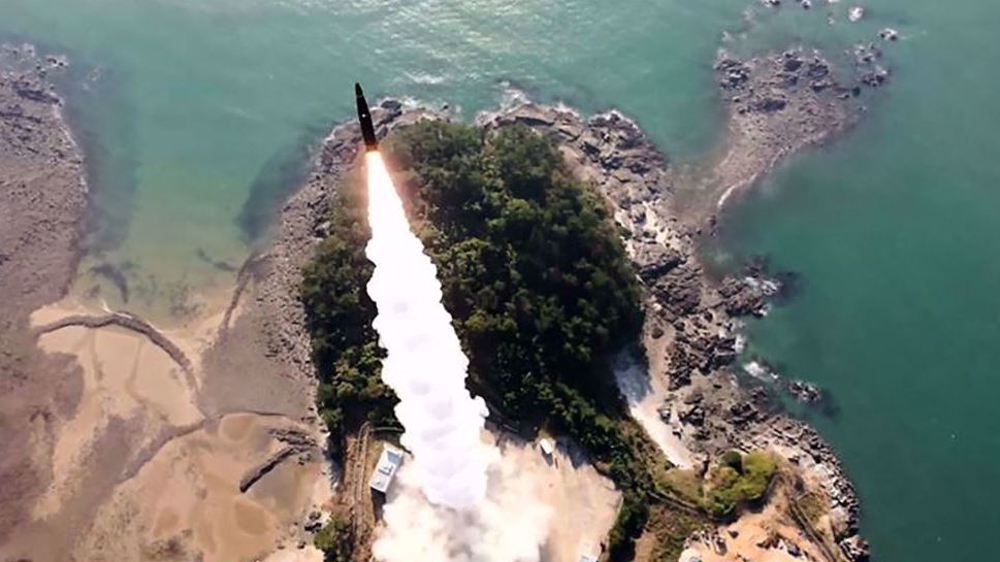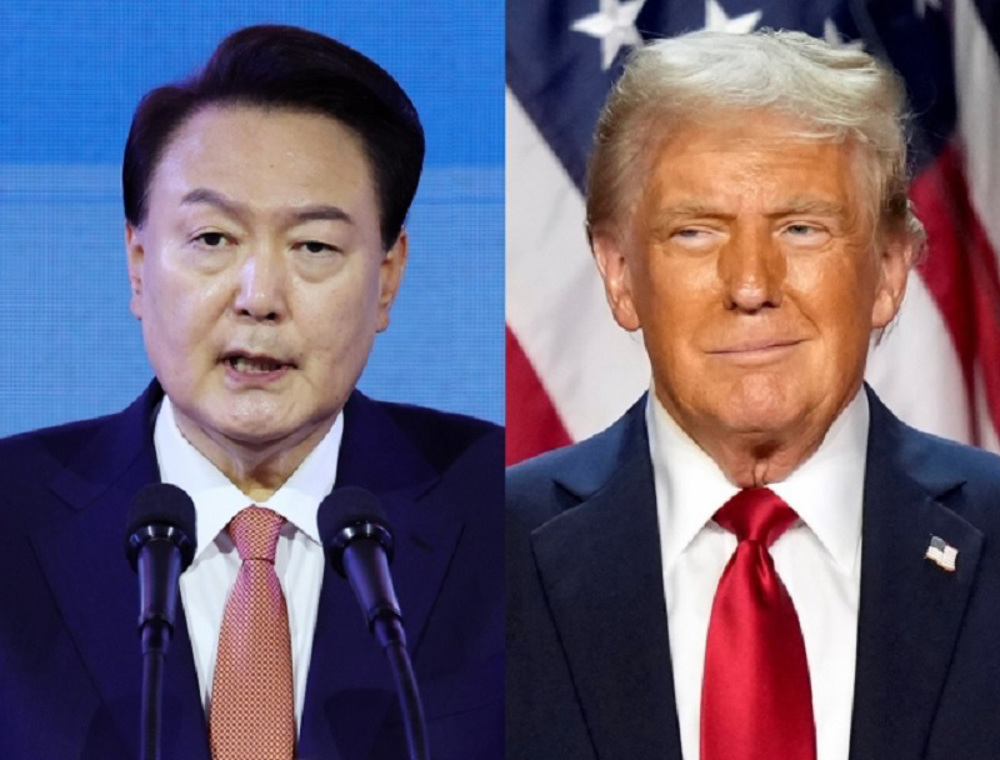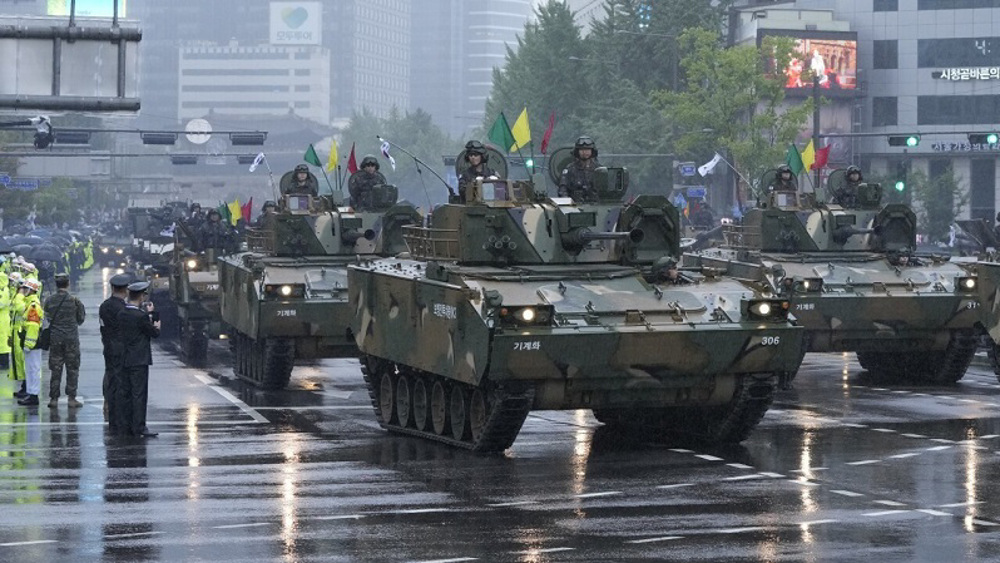South Koreans protest Japan’s claim over disputed islets
South Koreans have staged rallies in the capital city of Seoul to protest a Japanese claim to the South’s easternmost islets.
Activists held demonstrations Monday in conjunction with a Japanese event celebrating a claim of ownership to the islets, called Takeshima in Japanese and Dokdo in Korean.
Japan has marked February 22 as "Takeshima Day," designated in 2005 by the local government in Matsue, Shimane Prefecture, which claims administrative sovereignty over the islets.
Tens of South Korean activists tore up Japanese text books in protest near the Japanese Embassy in Seoul.
"The Japanese government is well aware that Dokdo is South Korea's territory; however, it has distorted [history] little by little every year and made far-fetched claims. But Japan should stop making a futile attempt and acknowledge Dokdo as South Korea's territory since South Korean people will protect it," Moon Jai-ik, a protest leader, said.
Demonstrators also slashed a banner depicting the islets with their Japanese name while chanting, "Dokdo is South Korean territory."
Protest leader Oh Chun-do said, "Japan has called our own territory 'Dokdo' as 'Takeshima' in a defense report and Diplomacy Blue Book and designated 'Takeshima Day' and sent a vice minister (to the ceremony for Takeshima Day). Therefore, we held a news conference and gave a performance to strongly condemn it."
Japan envoy summoned
Meanwhile, South Korea's foreign ministry summoned Hideo Suzuki, a Japanese minister and deputy chief of mission of the Japanese Embassy in Seoul, to protest Japan’s ceremony.
"The South Korean government strongly protests the Japanese government's sending of a senior central government official again to the so-called ‘Takeshima Day’ ceremony," a spokesman said.
He also urged Tokyo to "immediately stop any provocation over Dokdo, which is clearly an integral part of our territory in terms of history, geography and international law, and to humbly face up to imperial Japan's history of aggression."
Japan occupied large parts of China and the Korean Peninsula during World War II.
South Korea’s relations with Japan have long been strained over memories of the wartime history. Senior officials in Seoul maintain that Tokyo has yet to properly atone for its past actions.
Japan and South Korea are also at odds over sovereignty of the islands in the Sea of Japan.
Seoul, which has controlled the islands since the end of the Japanese colonial rule after World War II, denounces Japan’s claims as stemming from its colonial past.
Bilateral ties, however, have warmed since Japanese Prime Minister Shinzo Abe met South Korean President Park Geun-hye last month in Seoul.
VIDEO | Beirut’s southern suburbs targeted in 'heavy' Israeli strikes
Haaretz: Over 10,000 Israelis have migrated to Canada this year
VIDEO | Press TV's news headlines
Official: Iran to respond ‘decisively’ to any threat to its nuclear program
Nearly 70 Mossad-linked terrorists killed or captured in southeast Iran
What collapse of German coalition government means
Iran, Syria emphasize need to stop Israeli atrocities in Gaza, Lebanon
Clinton whisked away amid pro-Palestine protest at Belfast university













 This makes it easy to access the Press TV website
This makes it easy to access the Press TV website